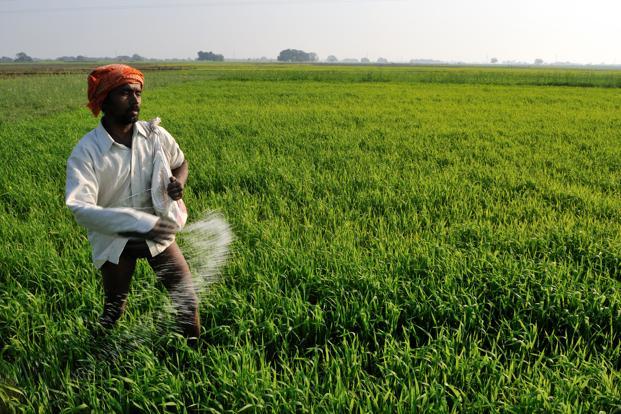LAHORE: Following another round of price hike, fertilizer players have increased DAP (Di-Ammonium Phosphate) prices by Rs150 per bag, pushing the new price range to Rs3,377 to Rs3,510 per bag.
Industry sources told Pakistan Today that a 13 to 15 per cent increase in prices came as a response to rising import costs in the backdrop of recent rounds of currency depreciation and an upward trend in global DAP prices. Given the price increase is based on ‘cost push’, the same is unlikely to impact margins of fertilizer players – particularly importers.
The current C&F contract price ranges from $433 to 436 per ton where any further devaluation or rise in international prices may create room for a further price hike where prices of August contracts may indicate the trend.
They claimed that the industry was currently sitting at the highest ever DAP inventory of 405 thousand tons in June 2018, where sales for the current month were expected to see a slight pick-up compared to the past two months. Nevertheless, manufacturers’ inventory expected to remain around 200-250 thousand tons by July-end.
On the other hand, sources said, urea prices remained stable after witnessing a hike of a cumulative Rs200 per bag since May 2018 supported by a steep decline in the industry’s inventory and discontinuation of price subsidy. This has effectively led to a renewed pricing power at the manufacturer’s end.
Sources highlight that urea inventory for July 2018 is expected to drop sharply to alarming levels, significantly below the buffer requirement of 100-200 thousand tons.
With an increasing possibility of shortage of domestic urea for the upcoming Rabi season, they believe, the upcoming government may opt for either (i) reduction in LNG cost to facilitate re-commencement of operations of small LNG-based fertilizer players, or (ii) allowance of urea imports where landed cost of internal urea is currently trading at 27 percent premium to local.
Sources said that the increase in DAP prices came as no surprise following international DAP prices shot up by 25 per cent since the start of the fiscal year 2018 as the Rupee lost 10 per cent against the Dollar within the same period. On the other hand, domestic DAP prices had increased by 26 per cent. Sources pointed towards further price increases as the impact of currency depreciation has not been reflected in domestic prices.
The reasons for these back-to-back price increases were the elimination of federal cash subsidy, lack of clarity on provincial government’s cash subsidy schemes, the impact of previous Rs56 per bag hit which was taken when the subsidy was reduced from Rs156 per bag to Rs100 per bag, and general inflation.
However, demand dynamics may need to be considered before the implementation of a further increase in prices. On the DAP front, keeping in view the global demand trend, local prices are expected to remain on the higher end, where a Rs20 to Rs30 per bag relief to farmers on account of reduced GST, from flat Rs100 per bag to 2 per cent of ex-factory price) may be diluted by a rise in international prices.
Contrarily, they said the usual seasonality seen historically during the month of May, suggests that the urea off-take could mainly be attributable to a high base, delay in Kharif sowing due to water shortage, and on-set of the Holy month of Ramzan to some extent.





Indeed some information about fertilizer growth?
I need some information about fertilizer growth.